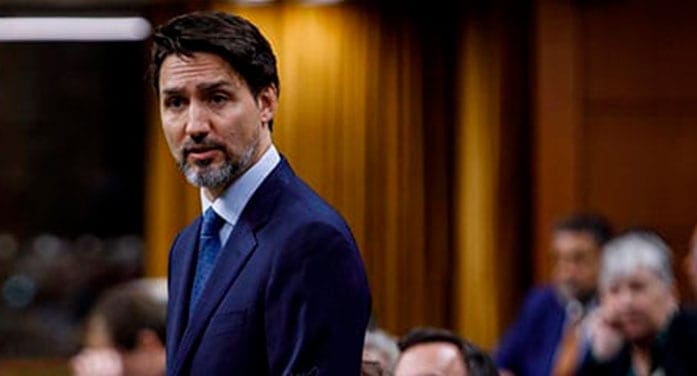 U.S. President Joe Biden’s decision to pull the plug on the Keystone XL pipeline is another punch to the gut for Alberta’s economy, but it’s also a good wake up call and provides us with some crucial lessons.
U.S. President Joe Biden’s decision to pull the plug on the Keystone XL pipeline is another punch to the gut for Alberta’s economy, but it’s also a good wake up call and provides us with some crucial lessons.
The first lesson is straight forward: we need politicians to let businesses build pipelines in Canada.
Yanking Keystone XL’s presidential permit wouldn’t have felt like such a blow if we were able to build Northern Gateway and Energy East, or if our political system hadn’t chased away Kinder Morgan when it tried to spend billions of dollars to build the Trans Mountain expansion.
Adding to the frustrations is Prime Minister Justin Trudeau’s No More Pipelines law and the discriminatory tanker ban that will throw up more roadblocks for future development.
The second lesson: you can’t buy social licence when it’s not for sale.
Alberta’s New Democrats told us that their provincial carbon tax would help us buy social licence for our pipelines. Instead, British Columbia’s politicians pledged to “employ every tool available” to block our pipeline, and Quebec’s premier called our oil “dirty energy” and said there’s “no social acceptance” for another oil pipeline.
FROM THE ARCHIVES: Bringing the facts back to the Keystone XL debate by Tom Olsen
Ottawa’s costly environmental policies also couldn’t win us brownie points. Trudeau is hiking the carbon tax by 467 percent and imposing a second carbon tax on top of that. By 2030, Trudeau’s two carbon taxes could soak a family for nearly $40 bucks every time they fill up their minivan.
The scoreboard isn’t adding up for Albertans: two carbon taxes, no Keystone XL.
This leads to a third lesson: Trudeau isn’t going to hand us a fair deal on a silver platter.
Trudeau barely batted an eye when Biden canceled Keystone XL because it was a “campaign promise.” Trudeau didn’t roll over like this when Premier Jason Kenney fulfilled his campaign promise to scrap the carbon tax.
This should come as no surprise. After all, how can Trudeau pressure Biden to let businesses build pipelines in the United States while making it harder for businesses to build pipelines in Canada?
Trudeau’s inaction has made it clear that it’s time for Alberta to reprioritize its fair deal fight.
A crucial step in our fight for fairness is this October’s equalization referendum, which is our best opportunity to put our grievances on the front pages of newspapers in Victoria, Trois-Rivières and St. John’s, especially if the vast majority of Albertans vote to abolish equalization.
Kenney has done his job and is holding the referendum. Now it’s up to Albertans to show up, vote and show Trudeau what we think of the status quo.
Where Kenney does need to do more work is on protecting our ability to develop Alberta’s resources. On this, Kenney’s former boss and Reform Party leader Preston Manning has some advice.
In the book Moment of Truth, Manning recommends Alberta push for a “National Unity Motion” or a federal-provincial agreement where “the federal government is prohibited from spending, taxing, legislating, or treaty-making in areas of provincial jurisdiction and joint jurisdiction, unless it secures the consent of the province(s) affected.”
This would cover natural resource development and environmental policies, according to Manning.
Trudeau may never agree to this, but other federal parties might, and so would provincial premiers, including Quebec.
Kenney needs to start building momentum for this and could provide some resources. Surely, there’s some MLAs in Edmonton who would like to put their six-figure paycheques to use advocating for this type of agreement and protecting Alberta’s resource development.
Biden’s decision hurts. But it’s also a wake-up call that we need to get pipelines built in Canada and that it’s time to reignite Alberta’s fight for fairness.
Franco Terrazzano is the Alberta Director of the Canadian Taxpayers Federation.
Franco is a Troy Media contributor. Why aren’t you?
For interview requests, click here. You must be a Troy Media Marketplace media subscriber to access our Sourcebook.
The views, opinions and positions expressed by columnists and contributors are the author’s alone. They do not inherently or expressly reflect the views, opinions and/or positions of our publication.


